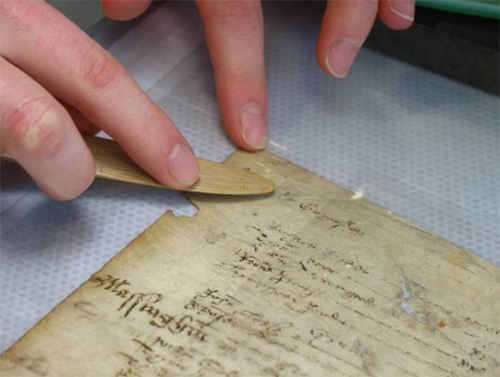Trinity Geneticist Receives Prestigious European Research Council Grant to Build DNA Data Matrix of Ancient Domestic Animals
Posted on: 02 February 2012
A €2.5 million grant has been awarded to Professor of Population Genetics, Dan Bradley of the School of Genetics and Microbiology at Trinity College Dublin to enable him to continue his research into ancient DNA of domestic animals from archaeological samples. The prestigious European Research Council (ERC) Advanced Grant was awarded for a period of five years.
The ‘Codex’ project, ‘Decoding domesticate DNA in archaeological bone and manuscripts’, will use state-of-the-art genetic tools to build up a ‘DNA data matrix’ of domestic animals over the last 10,000 years. The matrix could help identify key genetic changes that accompany domestication and subsequent animal management strategies. Genes should vary without major irregularities over space and time. But when they do not, such discontinuities in the matrix will highlight points of strong historical interest such as periods of economic turbulence ? perhaps driven by climate fluctuations or plagues. The work should also give insights of value to modern farming, disease control and animal productivity.

Animal parchment from manuscripts will be used to decode DNA of domestic animals.
The focus will be on the remains of cattle, sheep and goats and Co-Investigator Professor Matthew Collins of the University of York, will be allocated €.5 million of the total grant to implement a peptide-based high throughput species identification system. These are the animals from which parchment is made and the work will also sample from ancient manuscripts. The placement of any such artefact into the DNA matrix will allow the assignment of a ‘genetic postcode’ telling its place of origin and thus informing patterns of exchange and trade.
Commenting on the significance of the research, Professor Bradley said: “This research gives us the opportunity to build the genetic map of farm animals stretching back to their beginnings and will not only tell us much about their biology but also the key events that have formed our continent’s human history.”
European Research Council (ERC) Advanced Grants are designed to allow exceptionally established research leaders to pursue ground-breaking, high-risk projects in all fields of research. This is the second such award in the field of evolutionary genetics to the Smurfit Institute of Genetics. Professor Ken Wolfe was successful last year and Dr Ron Pinhasi (UCC), who holds an ERC Starter Grant, is also an Adjunct Lecturer in the Institute.
